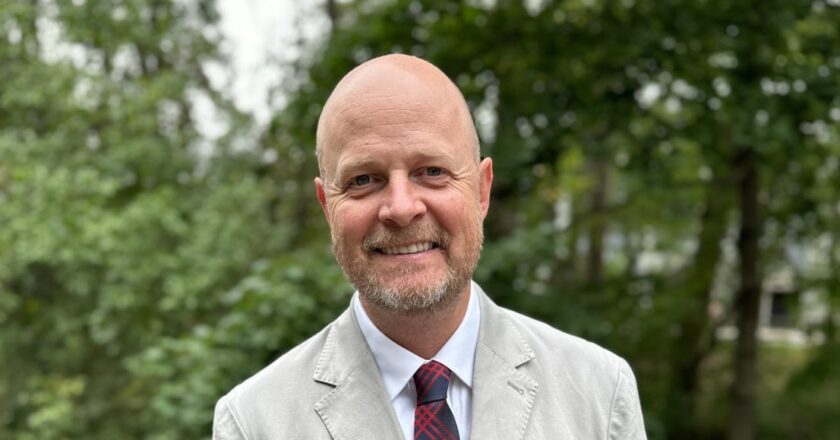Early in the summer, new Head of Upper School Mr. Dave Samson already started meeting with teachers. Learning their stories, Mr. Samson shapes the Upper School staff around him to create a cohesive team that functions for the student body. Mr. Samson has made a point of understanding the changes to the school, such as the positions of Dean of Students, Dean of Faculty, and new administrative assistants. In recent weeks, Mr. Samson has expanded his focus to creating a positive student learning environment.
Mr. Samson, along with new ideas, is bringing a plethora of new policies to GA, some of which were developed last school year. For example, a new policy this year will be the prohibition of selling plastic water bottles at the school store. This policy, voted on by the student body, fell on the faculty’s shoulders to accomplish.
The biggest change this year is the limited use of cell phones. Cell phones will only be allowed in designated community areas at specific times. These areas will include House Spaces, the Live Well Lobby, the Jordan Center, the Arts Center Belfry Lounge, the Roberts Family Library at designated times and outside.
“[This policy was formed from] GA feedback such as parent surveys, faculty and staff surveys, senior exit interviews, and meeting with kids during the spring and faculty over summer,” Mr. Samson said. “I’m a former school counselor, so I have a lot of my background in the psychological well-being of people. The research is now there on how cell phones can impact young people, especially the rise of depression and anxiety in young people.”
The policy is designed to restrict cell phone use between classes. However, enforcing the policy may be more difficult. Certain problems, like how students check phones for the schedule, have solutions like printout schedules; others may not have an easy fix.
“While I think the policy is good on paper, it will be unfeasible to enforce because of the number of teachers,” Tang said.
The use of cell phones at GA will be explored throughout the school as time goes on. The subject has many pros and cons that can only be explored on a case-by-case basis.
“I look forward to working with the student government and other interested students, faculty, and parents,” Mr. Samson said. “Together, we can implement further pilot programs regarding cell phone use and work towards our shared goal of ensuring a healthy, happy, and engaged community.”
Another policy change this year is the removal of late advisory on Tuesdays. Usually, faculty would meet to discuss upcoming changes while students got to hang out with friends.
“I want the advisors to get to know their advisees,” Mr. Samson said. “Time is valuable, and if it can be spent in the classroom getting ready for the school day and greeting advisees, I want it to be worthwhile for everyone.”
The time allows for extra interaction between advisors and advisees every week. While friends will see each other less in the morning, the time may not greatly impact student interaction.
“I enjoy advisory time because it allows me to relax in the morning. I don’t really hang out in lounges so the rule doesn’t have as large of an effect for me,” Tyler Tang ‘26 said. “However, I would like every so often to have that shortened advisory to hang out with other people.”
Ultimately, policy changes at GA, like the restriction of cell phones, will require a balance between the administration, student body, and parents.

